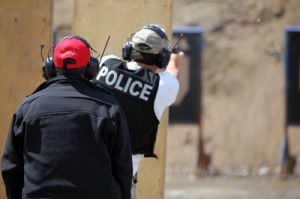Since most of the time the department, co-workers and family are totally unprepared to respond they tend to support us by either complimenting us on our strength or ignoring it altogether to prevent embarrassment of us, or them.
On one end they may give positive reinforcement or praise for our ability to survive or the courage to “get back into the saddle”. Both are very damaging in the fact that it will give us a false sense of security an our resentment toward them builds. This security in that very stage that if left unchecked ultimately can prevent us from acknowledging, accepting or seeking out support. It will be difficult because of the embarrassment of perceived impression to those who praised us that perhaps were not as strong as they thought we were. It also will begin to fortify a wall that will prevent us from trusting our friends with our feelings.
The department shrink, as they are referred are rarely trusted or respected by the troops because of their misuse by the department for its own ends. For instance. sending officers to see the department psychologist because of a formal complaint they made regarding sexual harassment. Or forcing an officer evaluated because a commander doesn’t like an individual. I know, this would never happen, right? It does. It’s no wonder why when were in need that we won’t trust our commanders and the department with our problems.
 I remember clearly working with a female officer who had been shot by her own firearm in a struggle by an assailant. After the incident in the training office there was a color copy of a picture of the officer with the words, “Those who don’t learn from their mistakes, are doomed to repeat them.”. Although I agree with the statement would you agree that it did not create a safe, comfortable and trusting environment for her to benefit? On the contrary, not only did it stigmatize the officer it created a condition that made it difficult or impossible for her to ask for help, because of a severe breach in trust. In fact, a year later the stress which could have been managed early on, disabled her.
I remember clearly working with a female officer who had been shot by her own firearm in a struggle by an assailant. After the incident in the training office there was a color copy of a picture of the officer with the words, “Those who don’t learn from their mistakes, are doomed to repeat them.”. Although I agree with the statement would you agree that it did not create a safe, comfortable and trusting environment for her to benefit? On the contrary, not only did it stigmatize the officer it created a condition that made it difficult or impossible for her to ask for help, because of a severe breach in trust. In fact, a year later the stress which could have been managed early on, disabled her.
With that being said, it is then the department’s responsibility to create an environment that is safe, comfortable and trusting in order for the officer to benefit from any intervention. This will be the crux that will determine whether the stress progresses just a ‘stressful event’ we are able to overcome, or festers and erodes into PTSD that will try and disable us.
It is advisable for departments to refer officers to a state or federal agency for counseling the officer for the reason that it will be easier for the outside counselor to overcome the barriers of trust and time. This is because with an outside agency, in my case seeing the Psychologist in the State Police, I was assured that what I said was completely confidential. I was shown what he would report to the department and what he would not. Trust was gained very quickly. The problem was that I had already went through 4 other psychologist before meeting him. He really had his work cut out for him.

